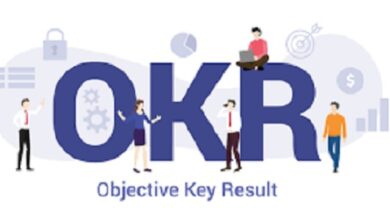What is financial education its Purpose Importance and learning
What Is Financial Education?
Financial education is the process in which an individual seeks knowledge to deal with money more consciously and intelligently .
The idea is that learning is converted into actions and practical behavior.
Because financial education leads to the qualification of decision-making.
From there, the person is better able to know what to do with their money .
What involves in financial education
For this to be possible, financial education involves mastering several aspects, such as the ones we will mention now.
1-Economy
Anyone who wants to educate themselves in relation to finance needs to understand a little economics and observe what happens around them .
It is necessary to understand the microeconomics of the products that you consume the most and also the macroeconomics, which allows you to assimilate the broader scenario in which the country is inserted.
2-Expense Control
Financial education involves having full knowledge about your own expenses. For this, one should not rely on memory, but record everything .
This is the starting point for making more qualified decisions, as it is possible to add, decrease, multiply and divide the variables and better understand which habits should be controlled.
3-Applications And Investments
Everyone knows that without saving money, there is no way to have an organized financial life.
The next step is to have knowledge about the best investments to make your money pay more .
4-Risks And Opportunities
Part of this item is covered in the previous one, because studying investment options involves looking for the best opportunities.
But this identification we are talking about is also about making the right decisions and attitudes , which is especially true for entrepreneurs .
5-Planning
Those who spend their entire work accidents with sick leave, and unpaid leave for personal matters. In the latter case, the firm may cut the employee’s salary in the same month live all the time in the present, which is a mistake in terms of financial education.
It is important to plan ahead, saving for a trip, to have financial freedom and to achieve a more comfortable retirement.
What Is Financial Education For?
Financial education serves to help a person apply everything we have said so far in their practical life.
Let’s be fair: those who don’t save money don’t do it because they don’t know that saving is a healthy habit .
She may just not be aware of the extent of the damage she may have if she has some emergency expenses or loses her job, for example.
Situations like these – which we don’t wish on anyone, but we know they are common – lead many to ask for loans or enter the famous overdraft, with stratospheric interest rates .
That’s where the snowball starts, from which it is quite difficult to recover later.
It may also be the case that the person is unable to organize themselves.
She thinks that the money she earns is insufficient to pay her bills when, in reality, she just has to better control her expenses .
Financial education, then, can teach you to be more conscious when shopping, to use rational thinking when opening your wallet.
With organization, the individual discovers some bottlenecks, small expenses that, when added up, add up to a considerable amount.
From there, a virtuous circle begins. The money saved is invested and starts earning more money .
Even with this reserve created, the person has already acquired the new habit of being more responsible with their money and will hardly go back to the old scenario of tightening.
In short, financial education is something that can change anyone’s life .
Importance Of Financial Education
The benefits do not only occur to the individual who becomes aware. The more people seek financial education for themselves, the better for society as a whole.
If the consumer public learns to better control their finances, the default rate decreases.
With greater security, entrepreneurs can market their products under more favorable conditions.
Financial education also allows a person to explore new possibilities .
For example, instead of spending all your money on clothes, you also spend your money on travel, sports, language courses , etc., which makes for a more diversified economy.
She will also have better conditions to invest in personal training , becoming a better professional, contributing to the qualification of the workforce in the country.
In the case of an entrepreneur, the benefits of financial education are even more evident.
With his finances and business management in order, he can expand his business , which results in more jobs and greater revenue for the government.
In addition to all this, keep in mind that those who educate themselves about their finances tend to share the knowledge acquired.
Especially when we are talking about a father or a mother who runs a family and needs everyone to use money conscientiously for the harmony of the home.
Personal Financial Education In Companies
Financial education should be a prerequisite for entrepreneurs , even for those who are individual microentrepreneurs.
After all, he does not have the security of a fixed work accidents with sick leave, and unpaid leave for personal matters. In the latter case, the firm may cut the employee’s salary per month, unlike someone who is in a formal job.
Not to mention the risk of confusing personal finances with those of the company .
And now we are not only talking about the micro-entrepreneur, but also the owner of small and medium-sized companies .
This is why many businesses succumb within their first few years , or worse, months.
Because their managers do not have knowledge of basic financial management tools, such as cash flow.
Of course, there we are already entering a more specific field, which is a little far from personal financial education.
Access the FIA Business School website and browse the undergraduate, graduate, MBA , post-MBA, master’s and extension courses.
But financial education in companies does not have to be just for administrators .
Offering employees courses on the subject is an action that can yield good results.
It serves as much for managers who have financial responsibilities in their sectors as for any other employee, to teach them to take better care of their money.
This type of benefit goes beyond the obvious, which contributes to greater satisfaction of human resources.
How To Learn About Financial Education?
What you are doing now is studying about financial education.
Later on, we will present some practical tips to better handle money .
Anyway, the internet is, yes, a great place to learn about the subject. There are many blogs, YouTube channels and e-books with good content.
But it is clear that studying on your own requires some discipline and also some discernment to identify which are good sources of information and which sites have poor content.
There are people who do not do very well with this type of study. No problem, there are other solutions.
You can look for an institution that offers personal financial education courses .
Remembering that, if the objective is to improve the financial management of a company, it is recommended to look for one of the FIA Business School courses.
Finally, there is the option of hiring a personal financial advisor.
This is the best option for those who want to completely change the way they manage their money.
Because the consultant will give you personalized advice , considering your profile and your economic situation .
You’ll be surprised to learn about the opportunities you were missing and the bad habits you didn’t even know you had.
Tips From Books On Financial Education
In addition to the internet, courses and a personal financial advisor, we recommend books.
Yes, few things are as valuable to the formation of a person as the habit of reading.
There is no shortage of books that teach us about financial education.
To make life easier for those starting out in the subject, we are going to recommend three great works.
Each of them will certainly bring contributions. Check it out below.
1-Rich Dad Poor Dad
Robert Kiyosaki ‘s book was released in 1997, has gone through over 80 editions and sold millions of copies worldwide.
This monumental success is due to the simple and clear language with which the author explains the need to invest in assets (which make money work) before spending on liabilities (which generate more expenses).
2-Smart Couples Get Rich Together
The book , which surpassed the mark of 1 million copies sold, is the perfect read for couples.
In it, consultant Gustavo Cerbasi encourages readers to talk about finances with their spouses.
It also shows that when investments are combined, it is much easier to have a good standard of living in the future.
3-The Zurich Axioms
In this book , writer Max Gunther reveals how the Swiss made their country one of the richest in the world after World War II.
The author organizes the teachings into 12 axioms that must be followed by those seeking high returns on their investments.
7 Financial Education Tips You Need To Know
Don’t have time to read any of the works mentioned above or are you unable to take a course or hire a financial advisor?
Okay, financial education is a gradual process , which can happen and evolve little by little.
Next, we’ll give you seven basic tips on how to get started.
1. Study
Even if you don’t have time for more in-depth studies, make it a habit to read blogs on the subject, at least occasionally, in addition to following the economic news.
Keep in mind that things change, today’s best assets may not be advantageous tomorrow. So, you always have to study.
2. Make A Spreadsheet
Make a spreadsheet, on paper or on the computer , as you see fit, and write down all your expenses.
It goes from the coffee after lunch to renting your apartment.
3. Track And Evaluate The Spreadsheet
If you divide expenses by categories , you will have several insights when following the information recorded at the end of the month, seeing great opportunities to save.
4. Make Small Sacrifices
We are not asking you to cut out everything that is good for you and costs you money.
But, with some discipline, it is possible to cut certain expenses and save part of the salary each month.
5. Apply
Research investments that earn more than savings and get into the habit of investing part of the money you saved monthly.
6. Set Goals
Try to set goals, such as depositing at least X reais per month in a given application. And follow that goal to the letter.
To motivate yourself, use a compound interest calculator and see how much it will pay off in ten years.
7. Use Technology To Your Advantage
There are numerous smartphone apps made to make it easier to keep track of daily expenses .



